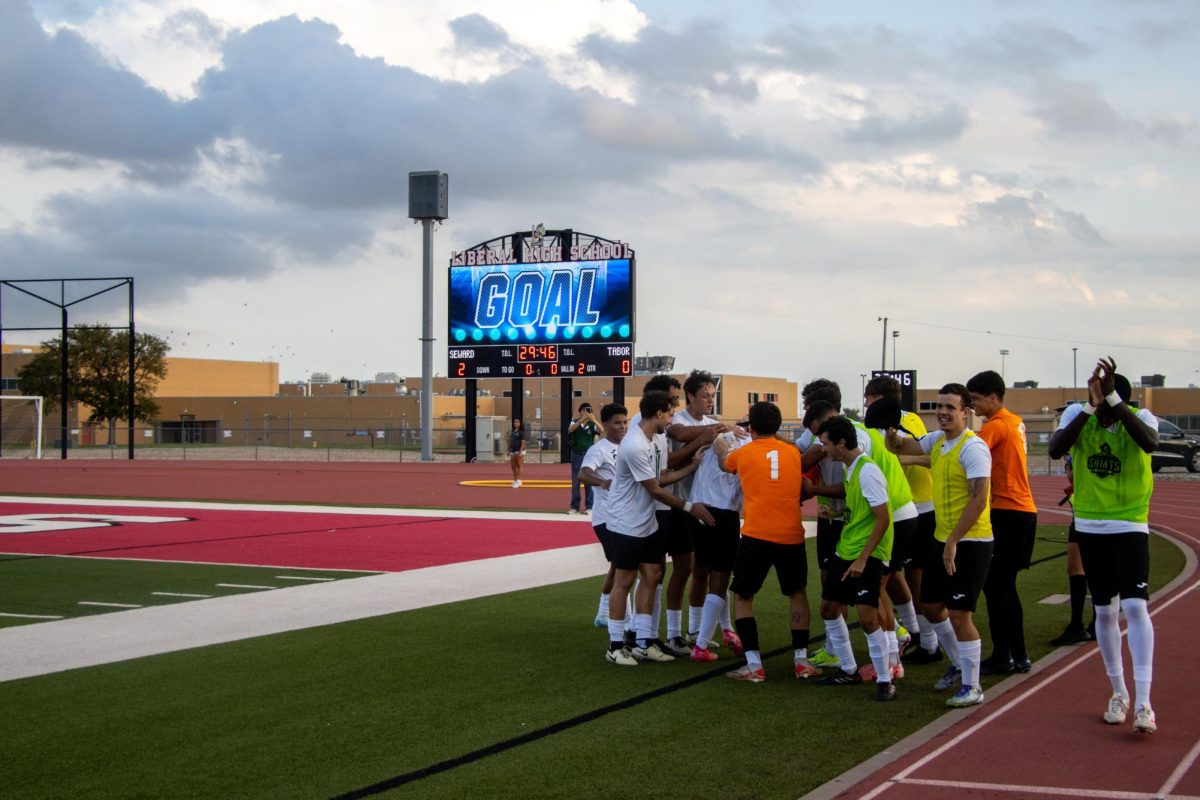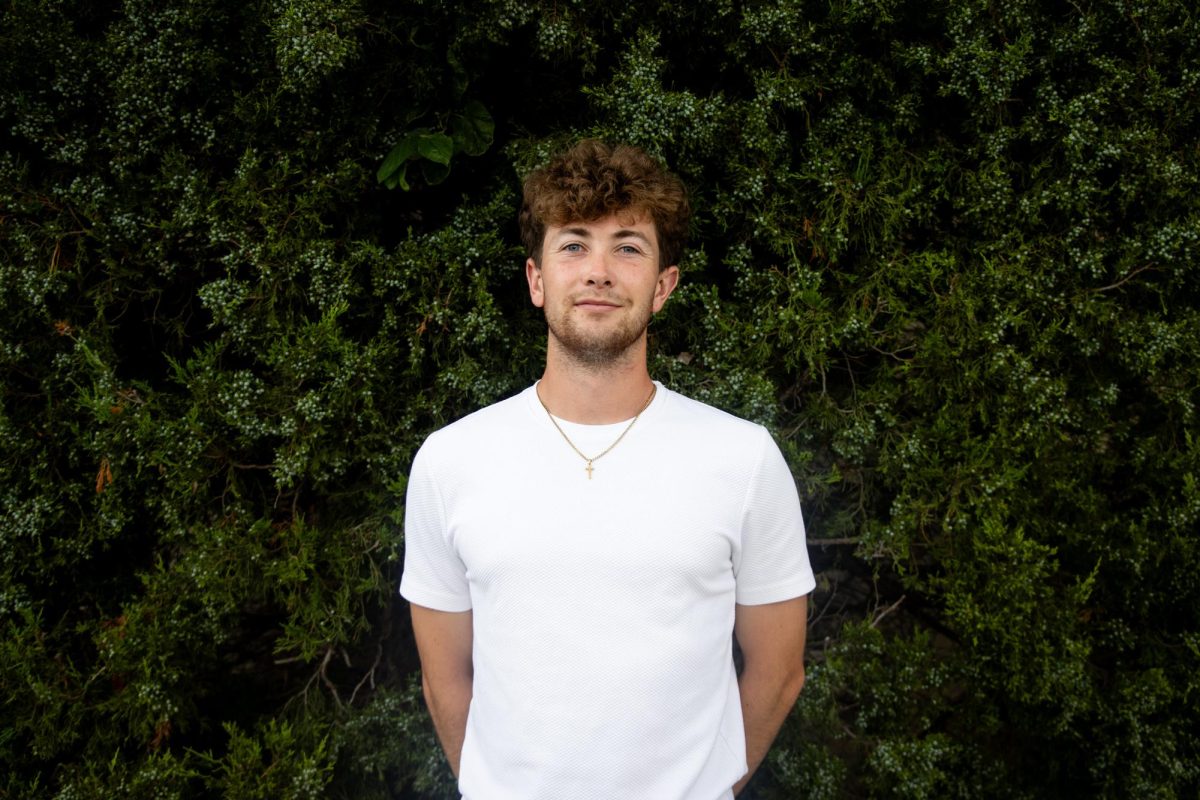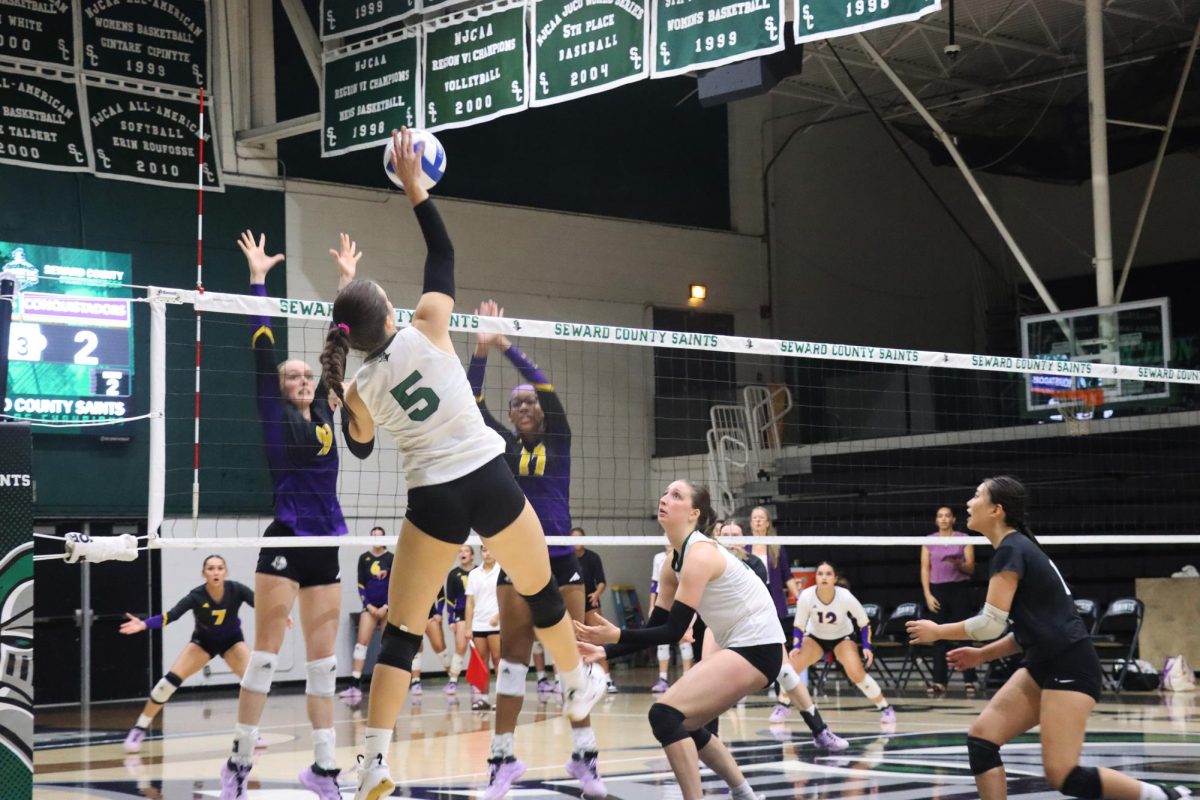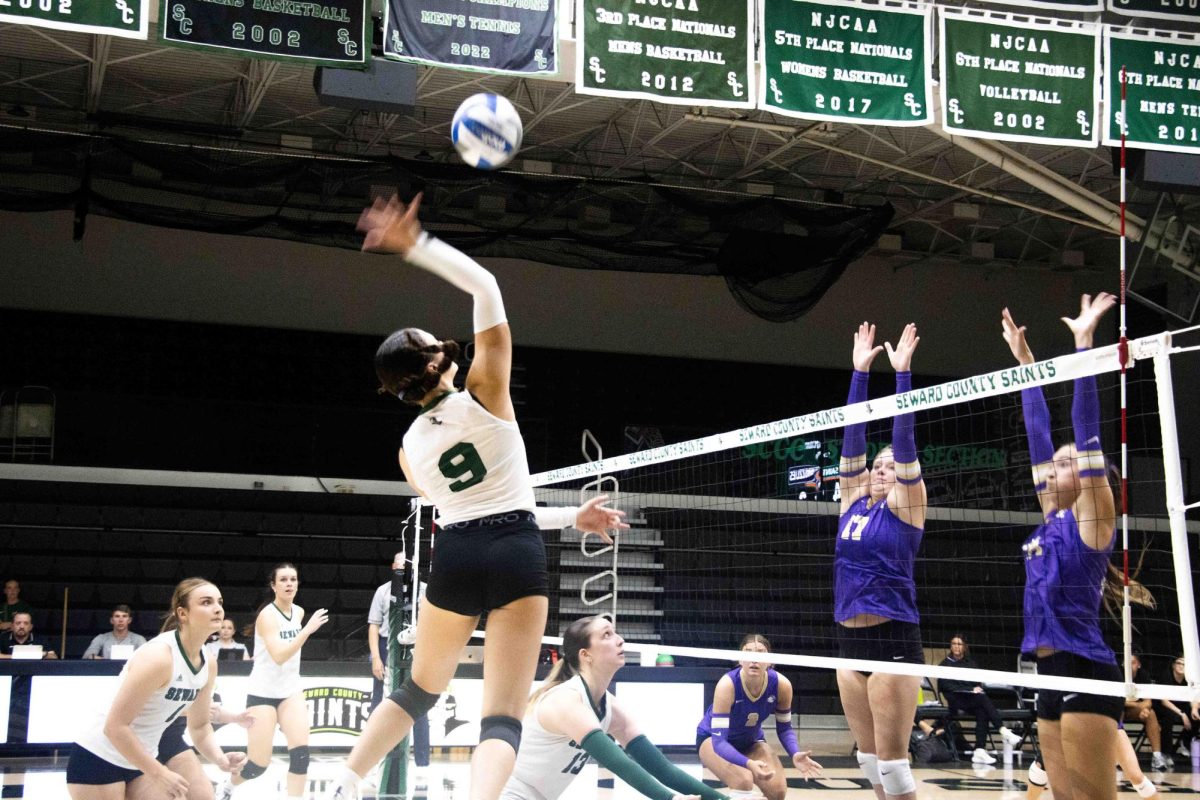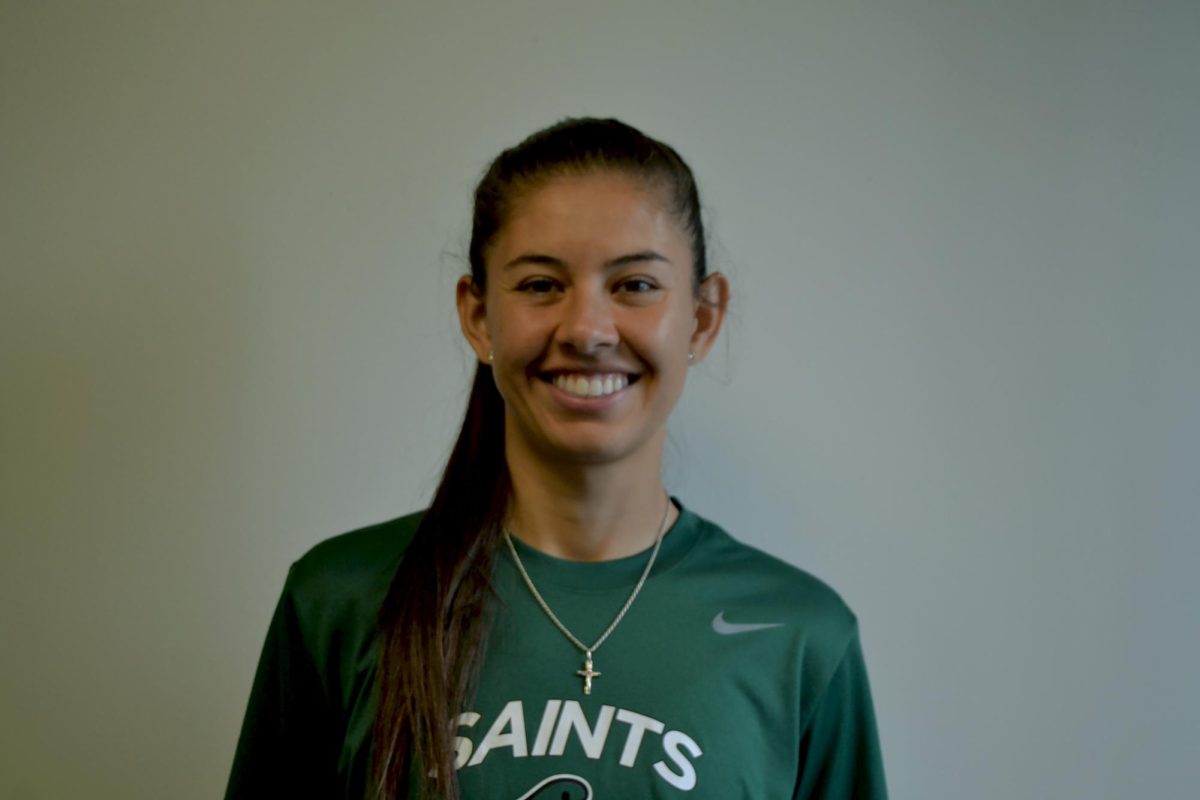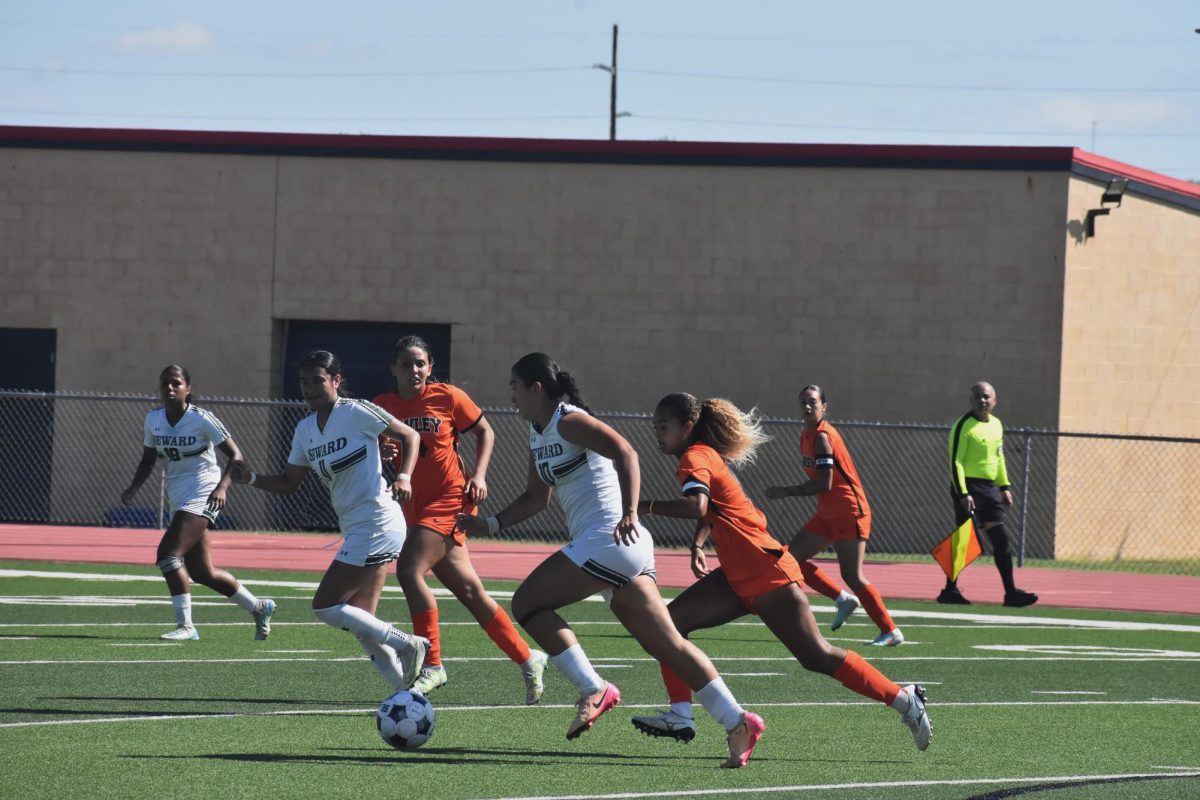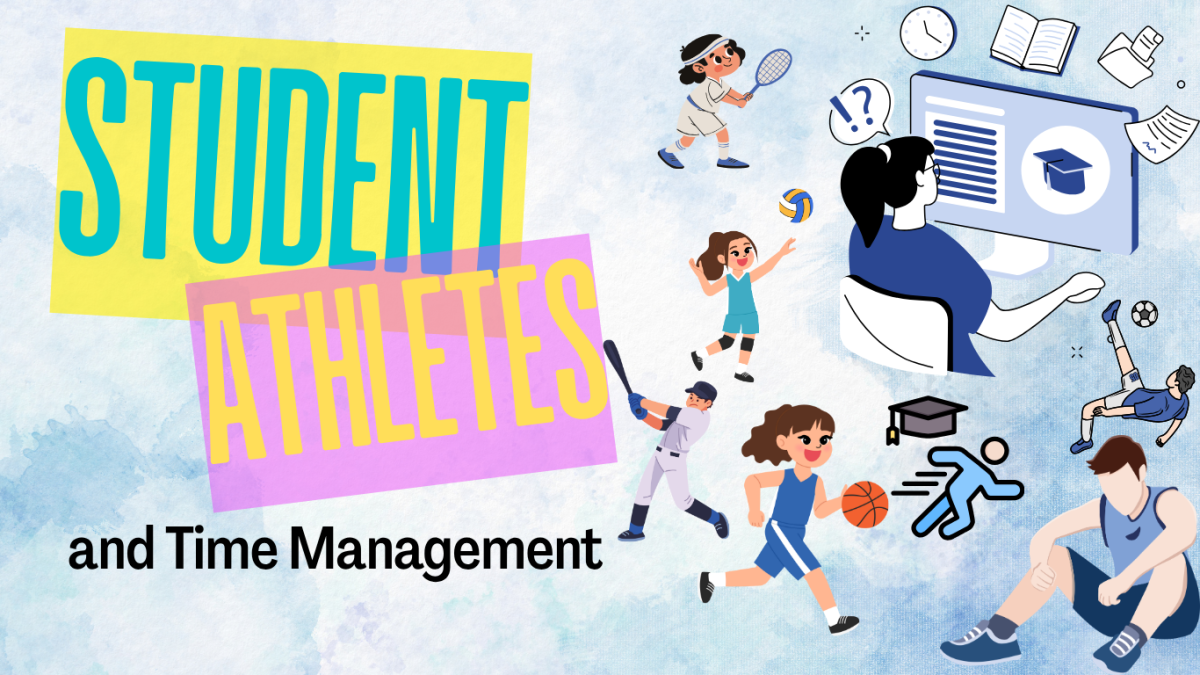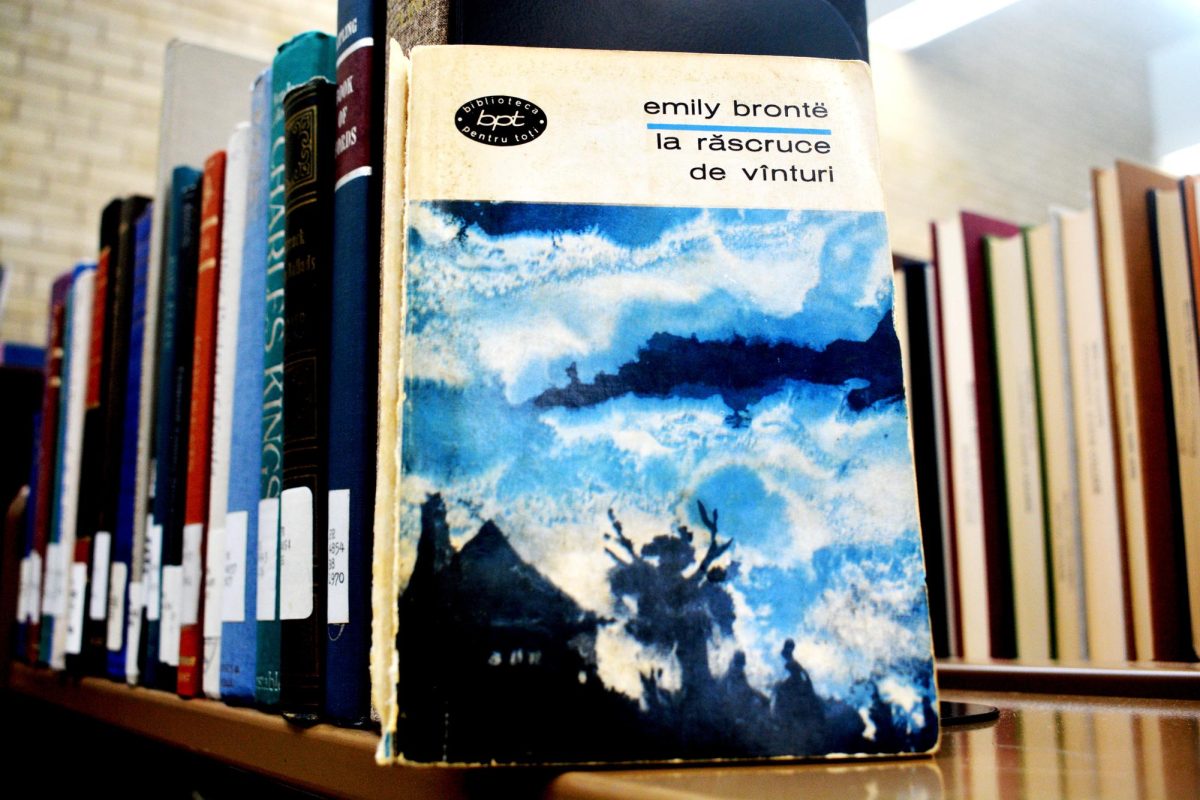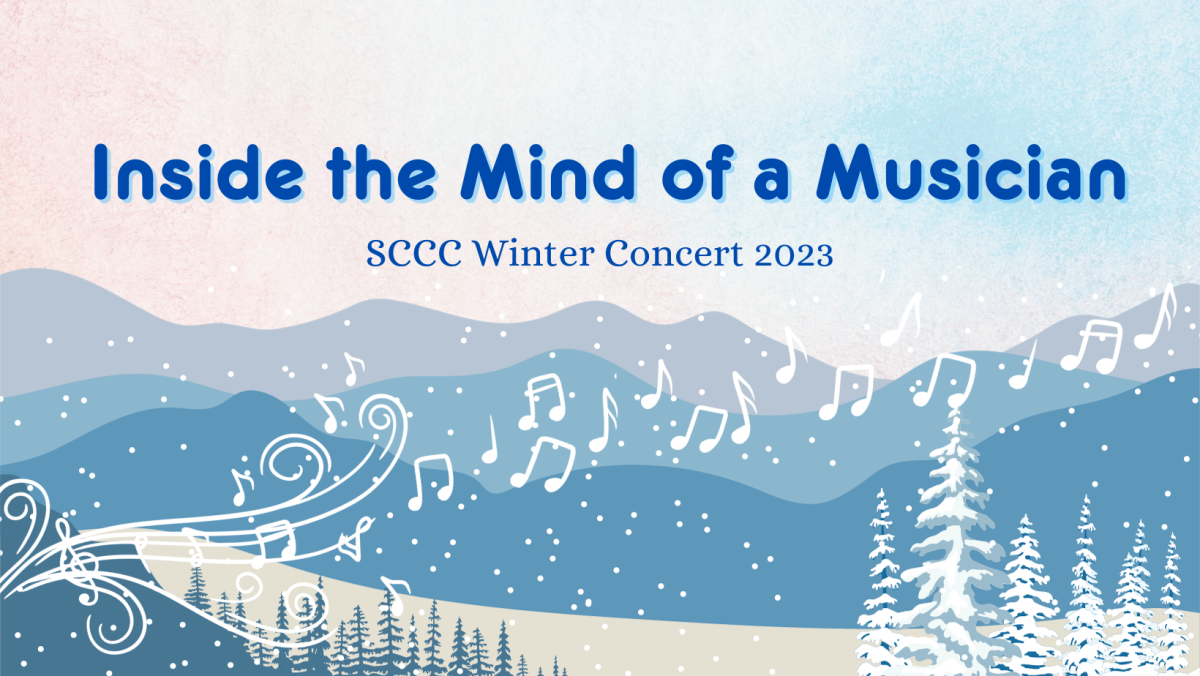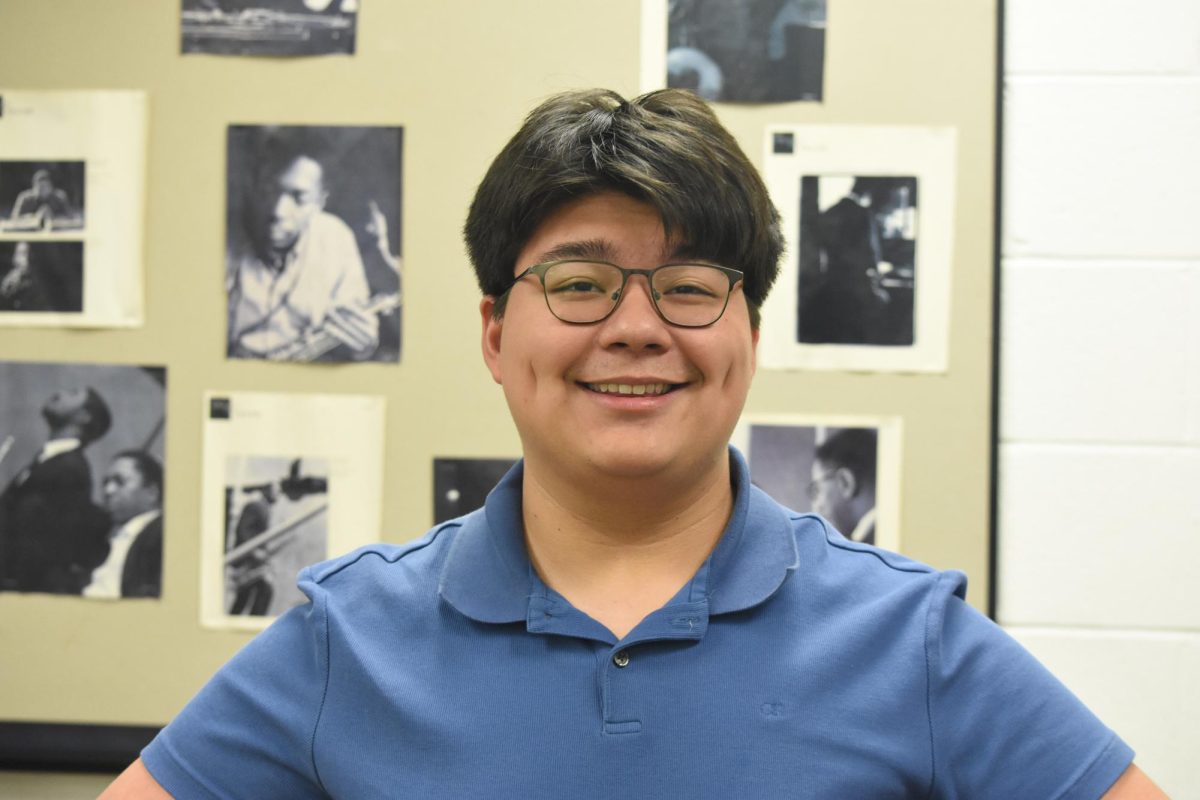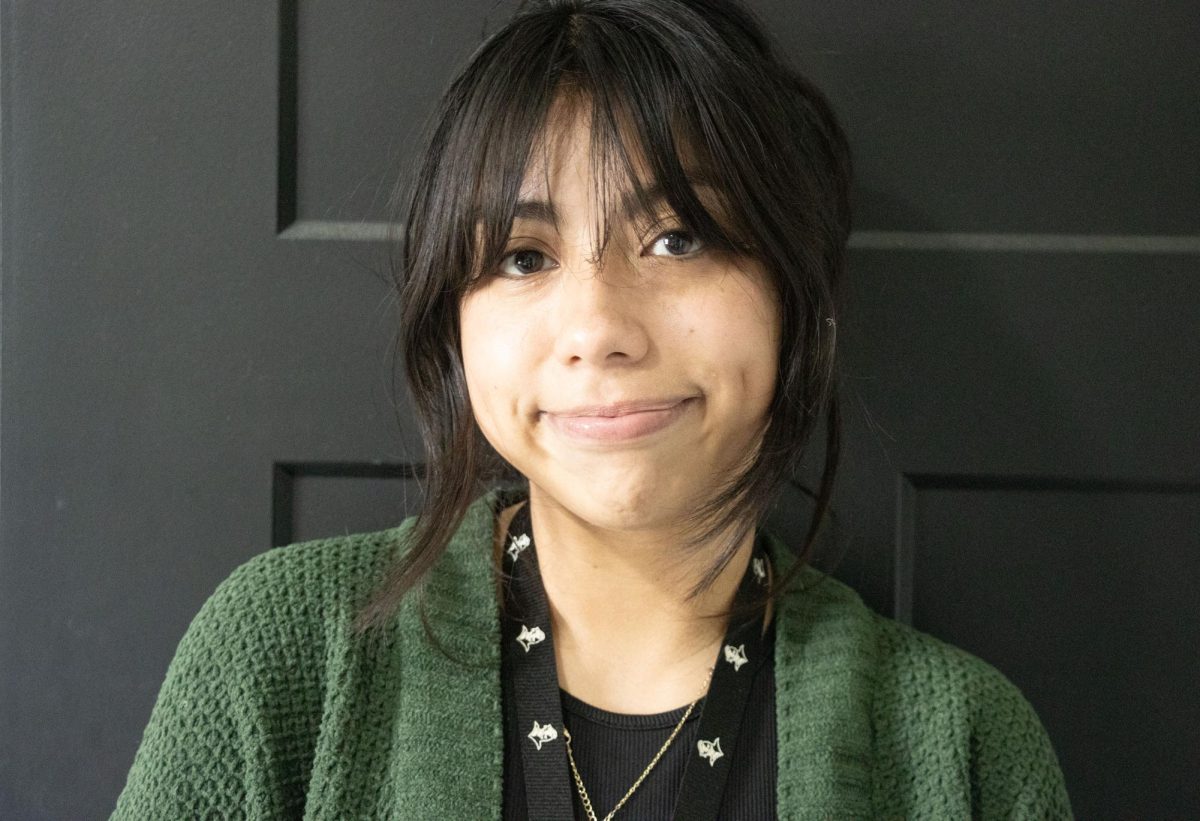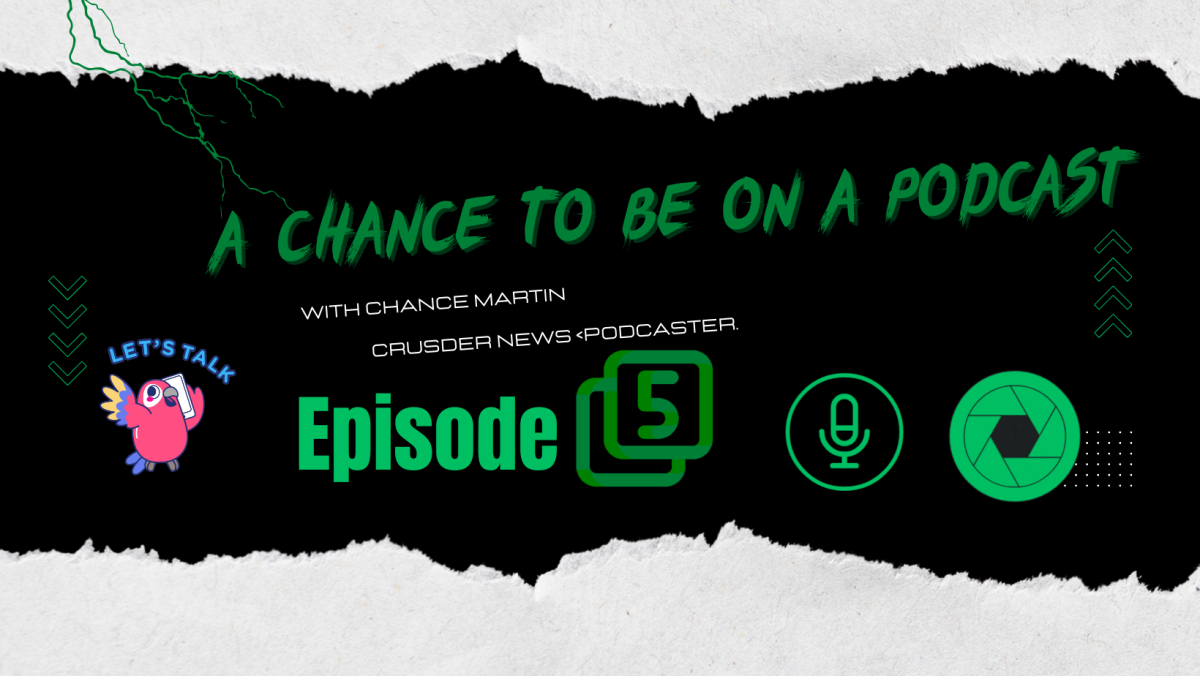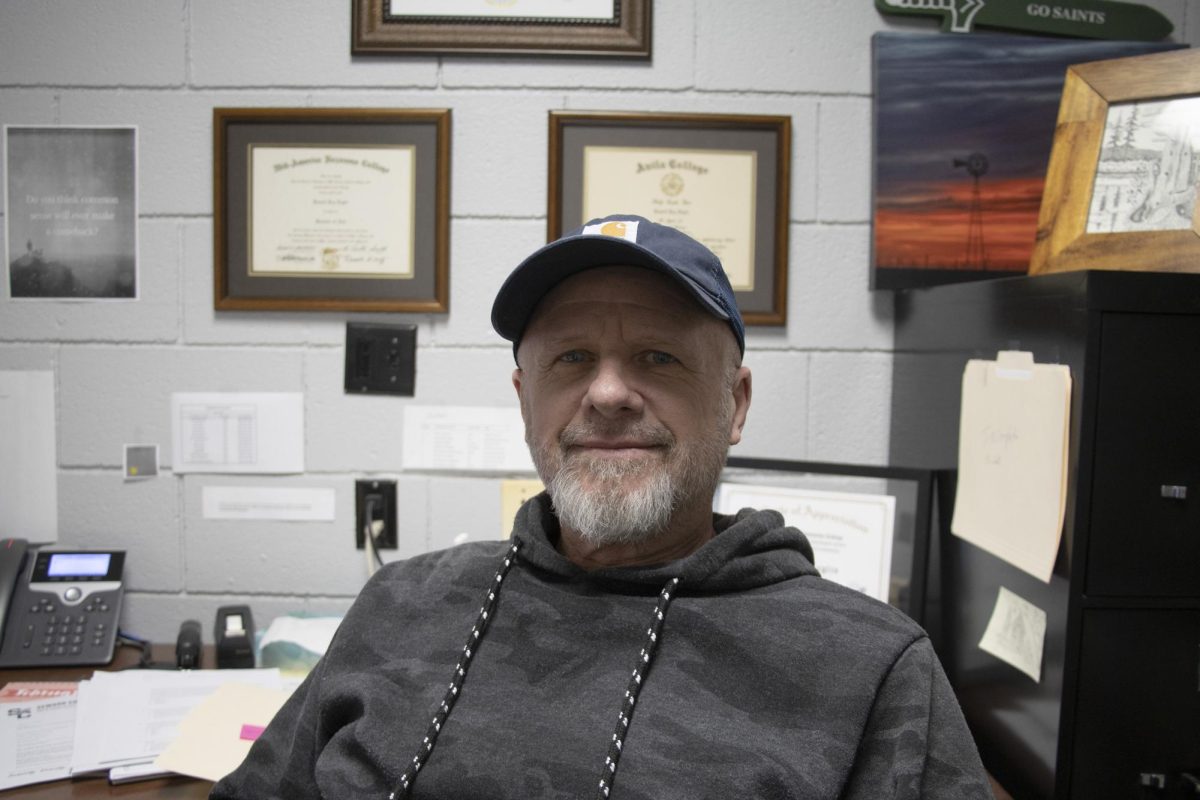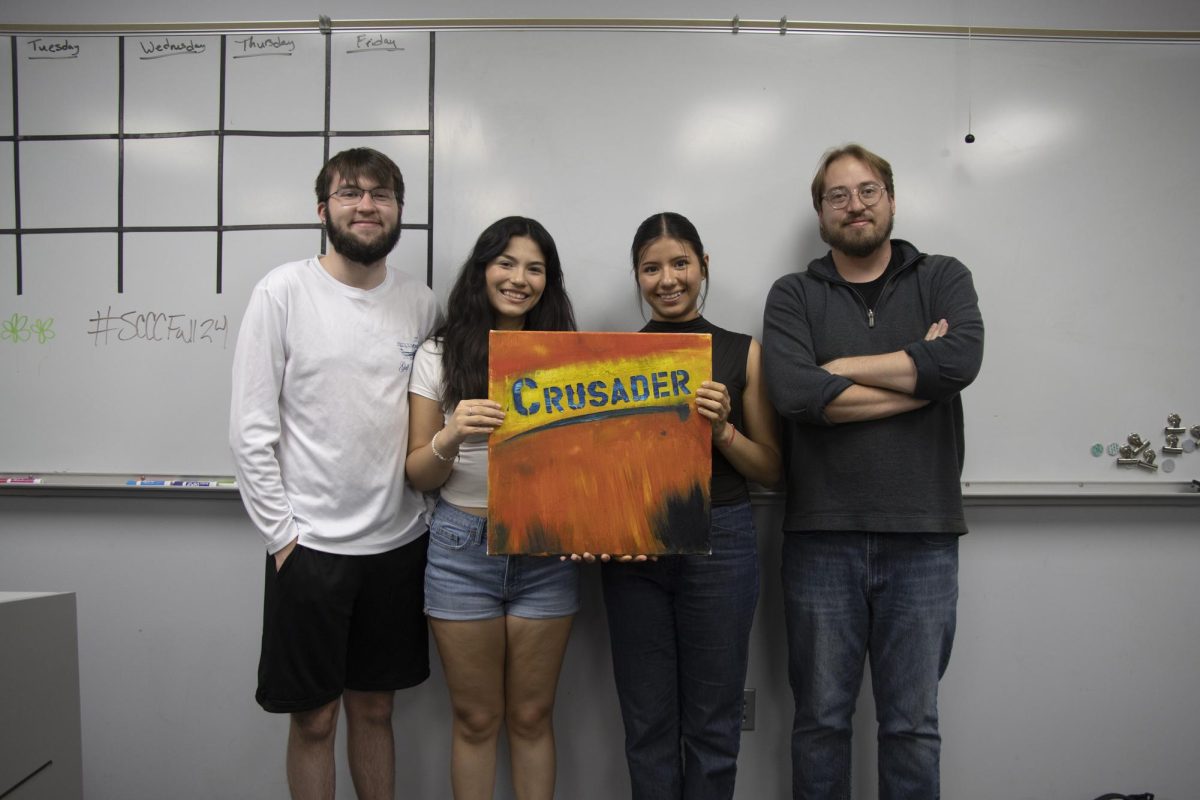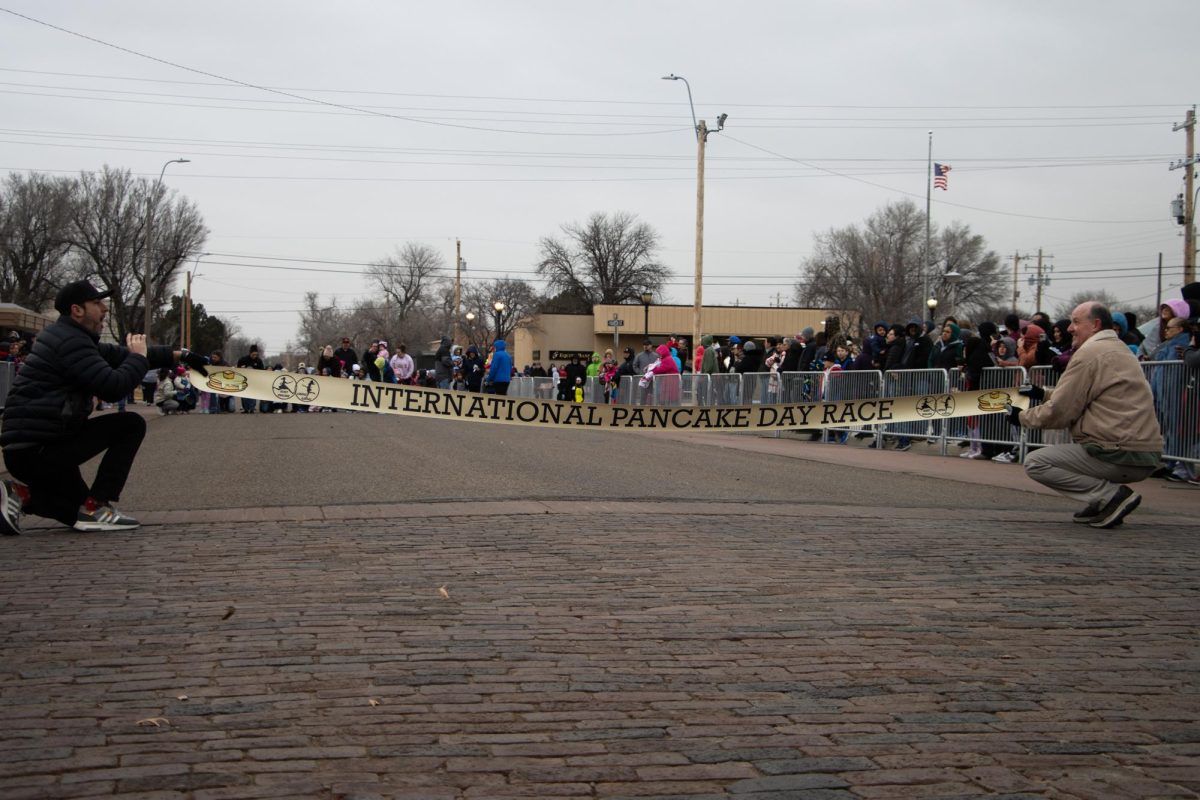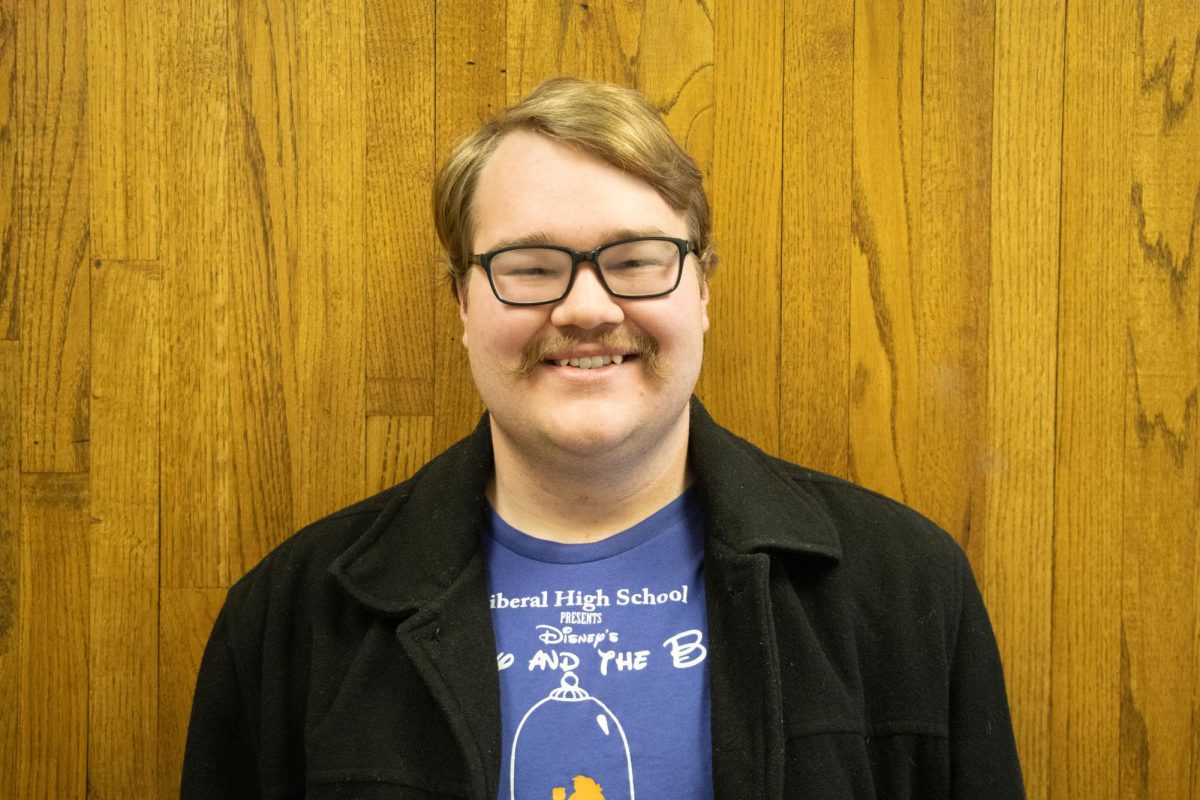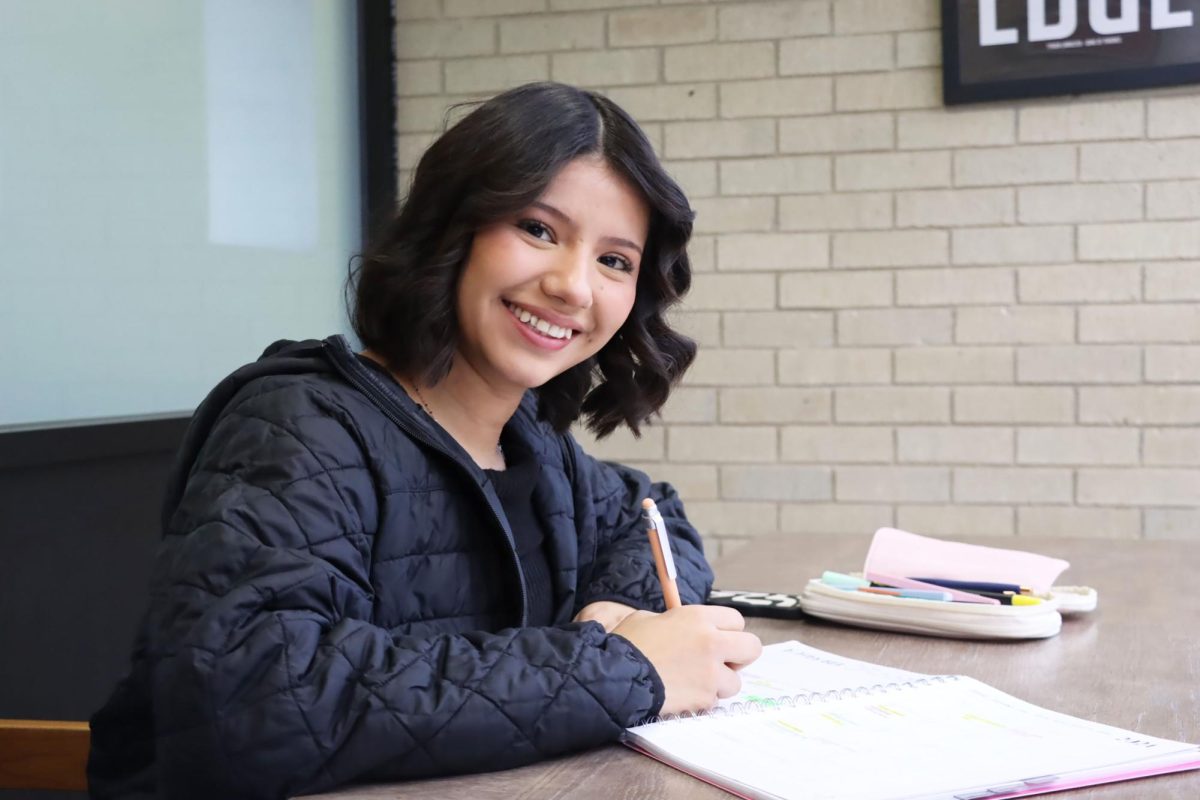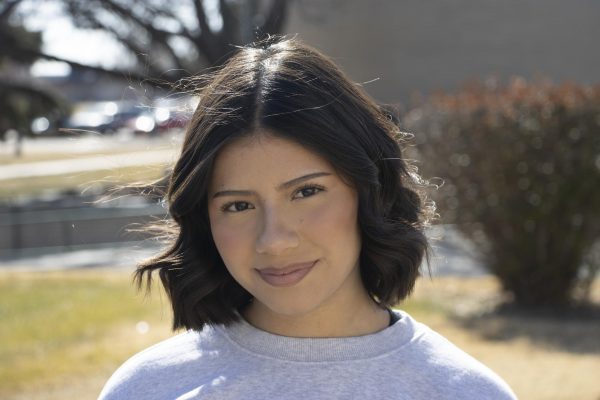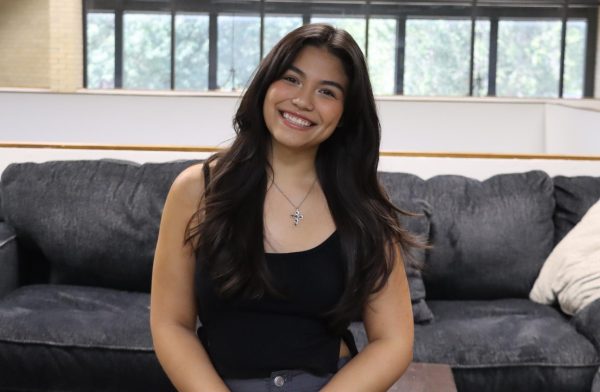Before the interview began, a moment set the tone of the interview. Russell Reglin and the interviewer went back and forth about whether to close the door- neither really cared, until the interviewer finally opted to shut it to avoid any interruptions. In response, Reglin said, “We can’t make this decision,” and both burst into laughter, instantly breaking the ice.
When did you first become interested in psychology, and what inspired that interest?
Probably college, when I took some psychology classes. I found them really interesting, and so that’s probably when it started.
Were there any specific experiences or people in your childhood that influenced your decision to pursue psychology?
My dad got into psychology: He was a preacher for many, many years, and then got his degree, got a master’s and Ph.D. in psych. So sometimes I would look through his books and stuff like that, and that kind of had an impact on me.
Were there any other fields that you considered before deciding on psychology?
I liked science. I took Earth Science class my sophomore year, and that was really interesting. So, I thought about that a little bit. I also, obviously, teach now, so I ended up teaching classes and I got interested in that. So now I teach psychology. In fact, I was taking classes throughout college in education, in psychology, and Spanish. I taught Spanish in high school for a while.
What was your educational journey like? What degrees or certifications did you obtain?
Degrees would be Spanish, Secondary Education and Psychology. Then I got a master’s in mental health, Master of Science and mental health counseling. Then I got a Ph.D. in general psychology, which is often recommended for people that are going to teach, because it’s a little of everything
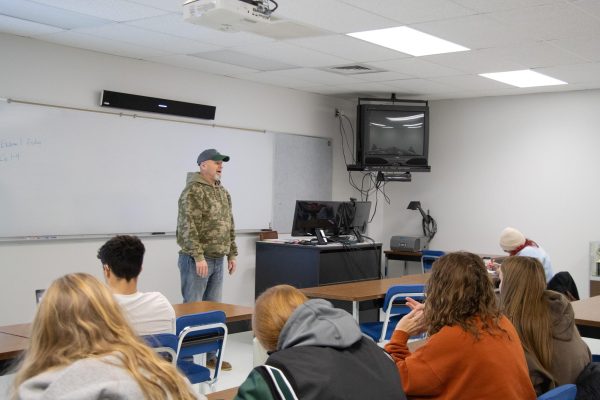
How long did it take you to have all your degrees?
Oh, that’s a great question! Got my three bachelor’s degrees in five years. That’s why the first senior year and the second senior year to finish up those degrees, the psych education, the Spanish then I got my masters. So about eight or nine years. I didn’t finish my Ph.D. until 2014 because it took a while to finish it, because I had a family and all that kind of stuff. In other words, 11 years ago is when I finally got my Ph.D.
Did you face any challenges during your education or training, and how did you overcome them?
The challenge for me was missing family time. I was working on my master’s, and I have four kids at home, and to do that, I had to go to classes in the evening because I worked full time in the daytime at the mental health unit. So, I would go in the evening, one or two nights a week to do those master’s level classes. And the challenge for me was to stick with it and stay motivated, because I didn’t like being gone from home. Yeah, so that was the hard part.
Were there any other particular professors, mentors, or experiences during your studies that shaped your approach to abnormal psychology?
What really affected my approach to psychology was some of the other counselors that I knew and had to hear how they did counseling and how they would deal with certain things like depression or anxiety or substance abuse and stuff like that. So being around them and talking with them, that’s what influenced how I look at psychology. I don’t do everything the same as them, but some things, what they said and did, shaped how I looked at things.
Can you describe a typical day working in the Mental Health Institution?
If I worked the day shift, I would come in to get a report, which is when they tell you about everything that went on with the adolescents the night before. And I would especially listen to those that I was their counselor. Then we would go: If it was school during the school year, then they would go into school for four hours at another part of the hospital. They would go and have class there and work. They worked in their school work that was sent by their school, (that they were not going to now because they were in the mental health unit). Then we’d go back and have lunch.
Then we’d have a group, and if we had 20 adolescents, we would break it up into probably three groups, and I would be counselor in one of those groups. I would facilitate, lead the group, yeah, and do that type of thing. Then we would have an activity or something. They also had some time where they kind of hung out in the lounge and just talked. With their friends. I would meet with my cases, my adolescents that I was working with. I would meet with them on what’s called a one-on-one. Sometimes if the parents could do it, they would come and do a family conference, we would talk about family things that are influencing the adolescent. Yeah, you know, some good, some not so good. By then it’d be time for me to go home.
What were some of the most challenging aspects of working with patients who have severe mental health disorders?
Schizophrenia. One time I was over at the school working a day shift. I’m at the school with the adolescents, and I had to come back and get something from one of the adolescents’ rooms. When I came, I walked in a long hallway. I got off the elevator on the floor where our unit is and I got ready to go, and there I saw, as I walked around the corner, there’s an adolescent there that had schizophrenia. He wasn’t at school because he couldn’t handle school. I came around the corner and he was about to hit her [a nurse that was by] in the head with a chair. I happened to get there. I ran in the hall, and I was able to tackle him just before he hit her with the wooden chair. The next day he was gone.
How do you handle your emotions in those types of situations?
That is a really good question! I’ll be honest with you, I had to learn to handle my emotions. I didn’t just automatically walk into the mental health unit the first day and know how to deal with somebody that wants to fight and is screaming at me and is accusing me of things that aren’t true. Back then, I would tend to get mad. That’s me in my teenage years. I had to learn to keep my emotions in check. It took practice and as silly as it sounds, I had to learn not to take things personally, because those people were on the unit for a reason.
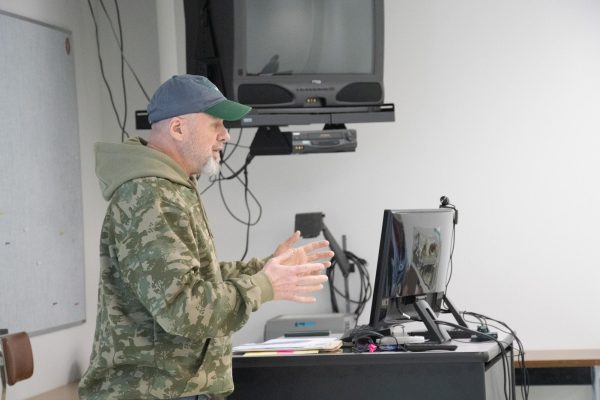
What has been the most fulfilling part of your career so far?
Oh, it’s definitely from teaching, and what’s been the most fulfilling part of it is the light bulb: When I see the light bulb go on somebody’s head when they go, Ah! in a concept that may or may not be difficult to understand, but it’s definitely one they didn’t get at that point. And then with a little discussion or a little more, you know, example, in class or something, they go, “Oh, okay, I got it!” and when they can perfectly not in my words, in their words, say what it is. I love it when students experience insights. When they get something new, that’s the other thing I like the most. When they sit and write in a paper and they make a reflection on how they think, look at it differently or how to deal with it, that’s what I enjoy the most.
Has your view on mental health evolved since you first started in this field?
Yes! And here’s how: I’m a cognitive therapist, that means I work with people on how they think, because if I think a certain way, whatever way I think impacts how I feel and what I do. Cognitive Behavioral Science Therapy means what I think affects how I feel and what I do if I think in better, healthier ways. That means something realistic based in reality. When somebody thinks that way, they don’t tend to have as many negative emotions, and they don’t tend to do stuff that’s stupid or harmful to themselves. Like an example of a harmful behavior is constantly getting in relationships that you know aren’t good for you. That’s harmful behavior, and so learning not to do that, why expect this significant other to be different, if they’ve shown all the signs to be just like all the other people I’ve dated that showed those signs and it wasn’t a good relationship.
If you could give any piece of advice to someone entering the field of psychology, what would it be?
Uh, pay attention to the concepts, be flexible and allow yourself to truly understand them, and then you can decide as time goes on, how much you want to make whatever concept a part of how you do counseling. Pay attention to all of it, and you will have more arrows in your arrow bag to use to deal with problems, because you have a variety of ideas. Over time, you will probably find 234 that you tend to use to learn them all. Get an understanding of it. Have a clue, because you never know when you might find it. So be open to things!
Looking back, would you do anything differently in your career or education?
I would try to get my degrees done a little quicker because it’s not that they don’t have a value doing it in the length of time that I did it, it just was a drag on finances, because you got to pay for school. I try to buckle down and get it done quicker.



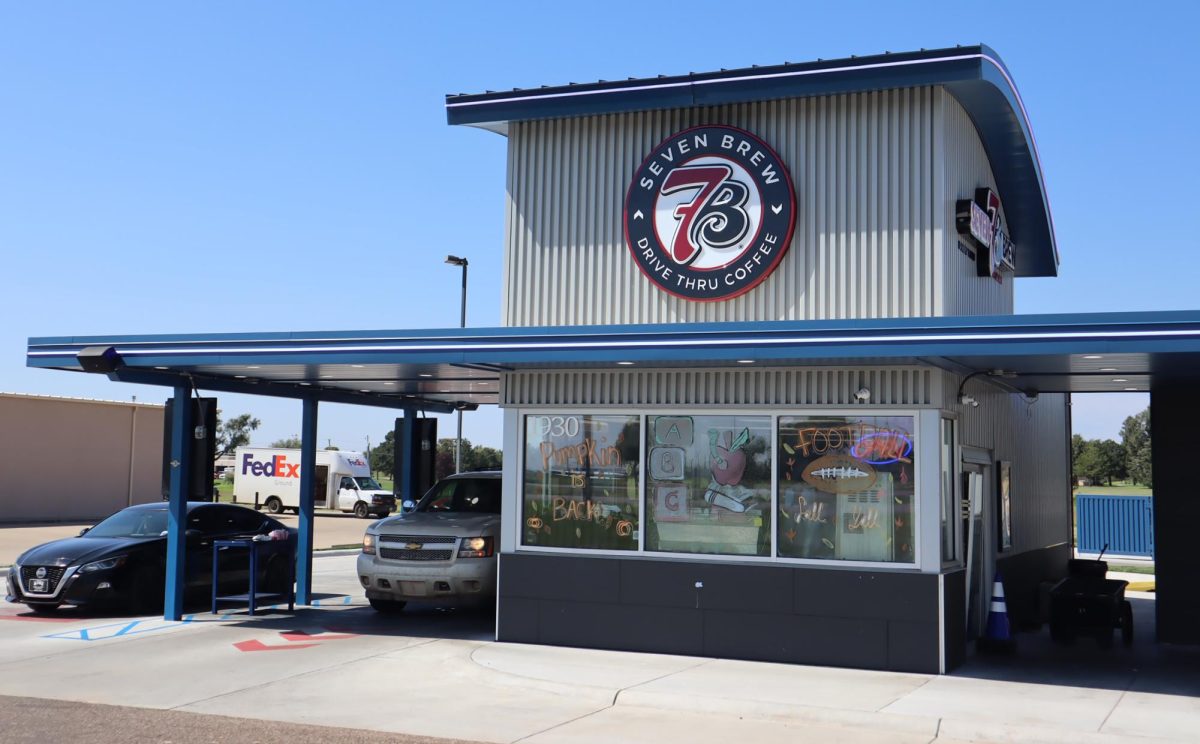
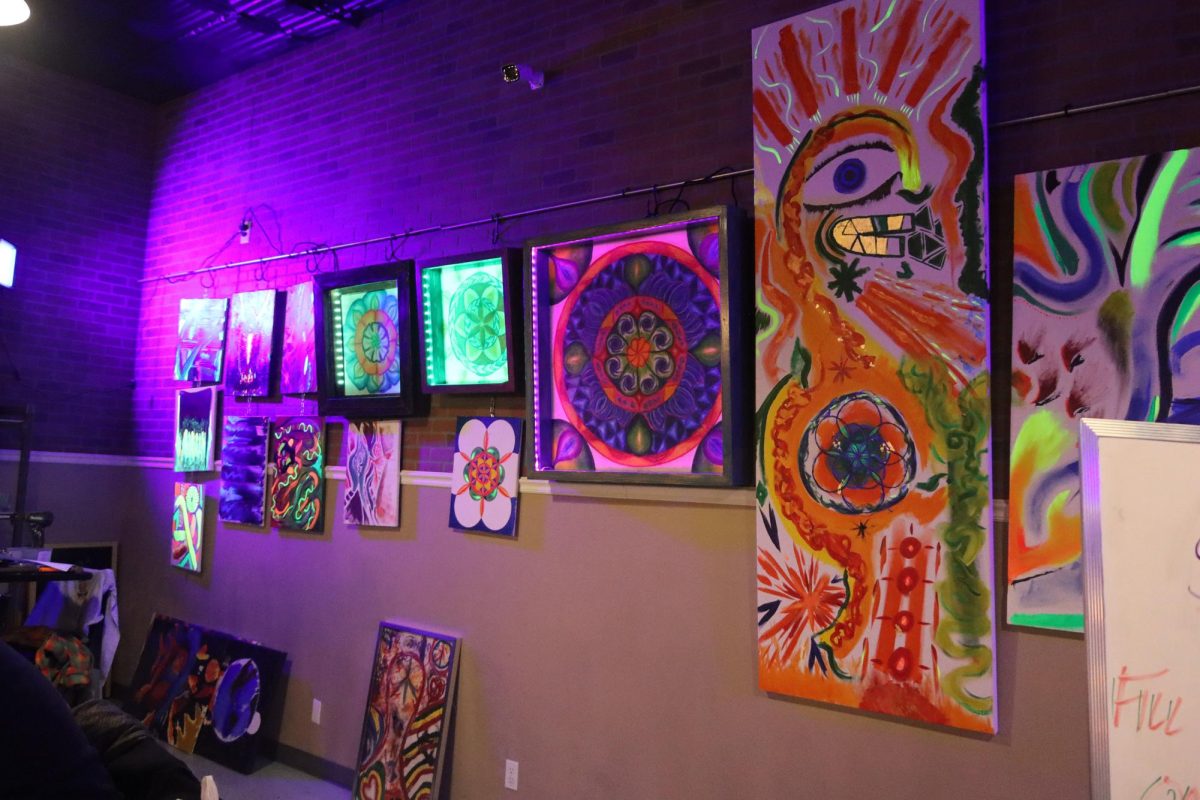









![The sophomores were recognized on the field instead of walking across the stage during their doubleheader. They received their diplomas and a picture of themselves playing during their career at Seward. [Pictured left to right are Dylan Day, Reed Thomas, Jase Schneider, Mason Martinez, Gannon Hardin, Brody Boisvert, and Zach Walker]](https://crusadernews.com/wp-content/uploads/2022/05/WEBDSC_0275-900x454.jpg)





